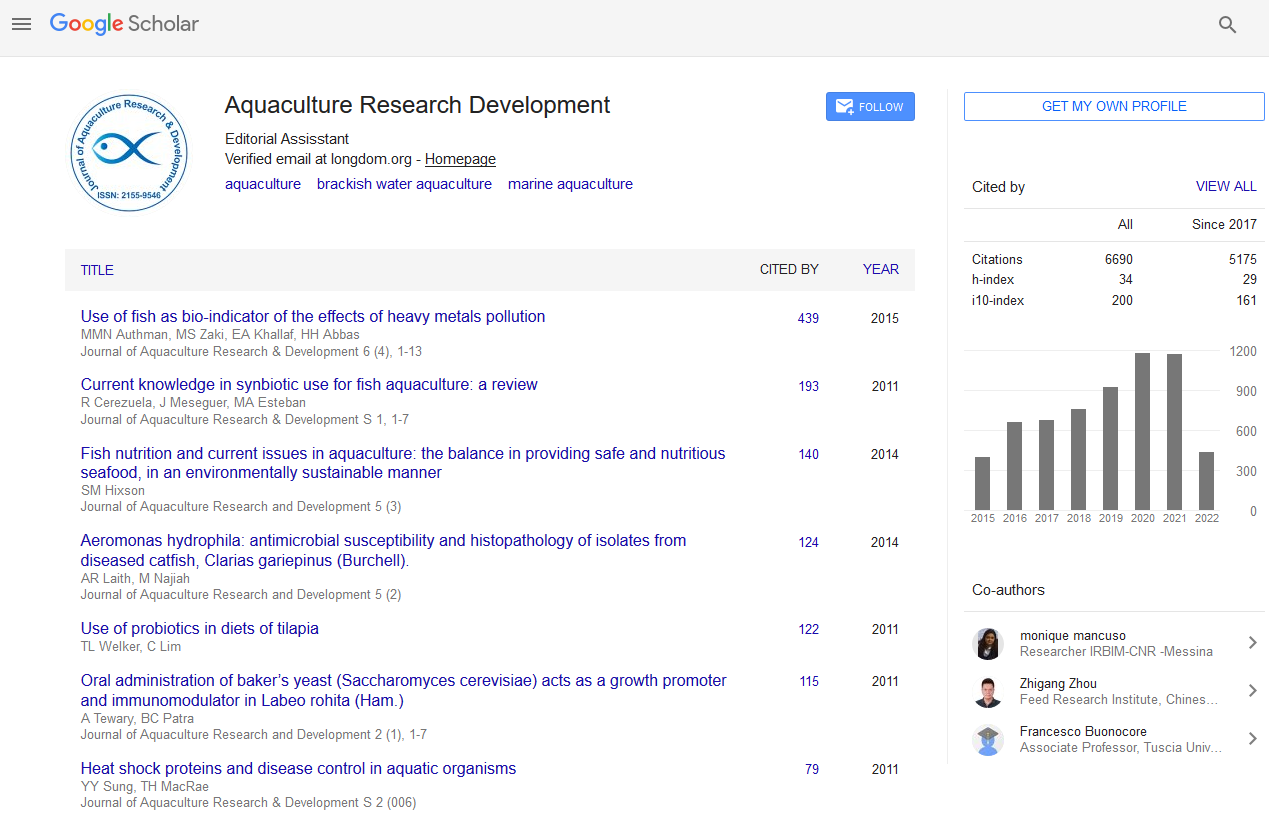PMC/PubMed Indexed Articles
Indexed In
- Online Access to Research in the Environment (OARE)
- Open J Gate
- Genamics JournalSeek
- JournalTOCs
- Scimago
- Ulrich's Periodicals Directory
- Access to Global Online Research in Agriculture (AGORA)
- Electronic Journals Library
- Centre for Agriculture and Biosciences International (CABI)
- RefSeek
- Directory of Research Journal Indexing (DRJI)
- Hamdard University
- EBSCO A-Z
- OCLC- WorldCat
- Scholarsteer
- SWB online catalog
- Virtual Library of Biology (vifabio)
- Publons
- MIAR
- University Grants Commission
- Euro Pub
- Google Scholar
Useful Links
Share This Page
Journal Flyer

Open Access Journals
- Agri and Aquaculture
- Biochemistry
- Bioinformatics & Systems Biology
- Business & Management
- Chemistry
- Clinical Sciences
- Engineering
- Food & Nutrition
- General Science
- Genetics & Molecular Biology
- Immunology & Microbiology
- Medical Sciences
- Neuroscience & Psychology
- Nursing & Health Care
- Pharmaceutical Sciences
Abstract
Growth Performance, Haematological Indices and Some Biochemical Enzymes of Juveniles Clarias gariepinus (Burchell 1822) Fed Varying Levels of Moringa oleifera Leaf Meal Diet
The study examined the utilization, hematological and biochemical enzymes of Clarias gariepinus juveniles fed varying levels of Moringa oleifera leaf meal diets for a period of 8 weeks. Moringa oleifera leaf meal substituted fish meal at 0% (control), 10%, 20%, 30%, 40% and 50% in the six different diets. Clarias gariepinus juveniles (mean weight 29.69 ± 0.91 g) were randomly distributed into 18 concrete tanks at 10 fish/tank in triplicate treatments and were fed twice daily at 8.00 hrs-9.00 hrs and 17.00 hrs-18.00 hrs for 8 weeks. The mean weight gained (MWG), specific growth rate (SGR), feed conversion ratio (FCR), protein efficiency ratio (PER) were calculated. The results obtained in the experiment showed that fishes fed with the control diet did not show statistical significant (p>0.05) difference from fishes fed with 10% and 20% M. oleifera leaf meal diet in mean weight gain (MWG), specific growth rate (SGR) and feed conversion ratio (FCR). The haematological parameters results showed that the mean values of packed cell volume (PCV), red blood cell (RBC) and haemoglobin (Hb) were 27.17 ± 1.94%, 2.33 ± 0.38×106 mm-3 and 8.06 ± 0.54 g/100 ml respectively in the fishes in the experiment. These parameters decreased as M. oleifera leaf meal increased in the diet. The serum enzymes: Alanine aminotransferase (ALT), Aspartate aminotransferase (AST) and Alkaline phosphatase (ALP), in the fishes fed with diet containing 0%, 10% and 20% M. oleifera leaf meal were not statistically significant (p>0.05). The present study showed that M. oleifera leaf meal has good potential for use as fish meal substitute in C. gariepinus diet up to 10% level without compromising growth. The toxicological investigation indicated that at above 20% M. oleifera leaf meal in the diet, the serum enzymes increased suggesting cellular damage.


